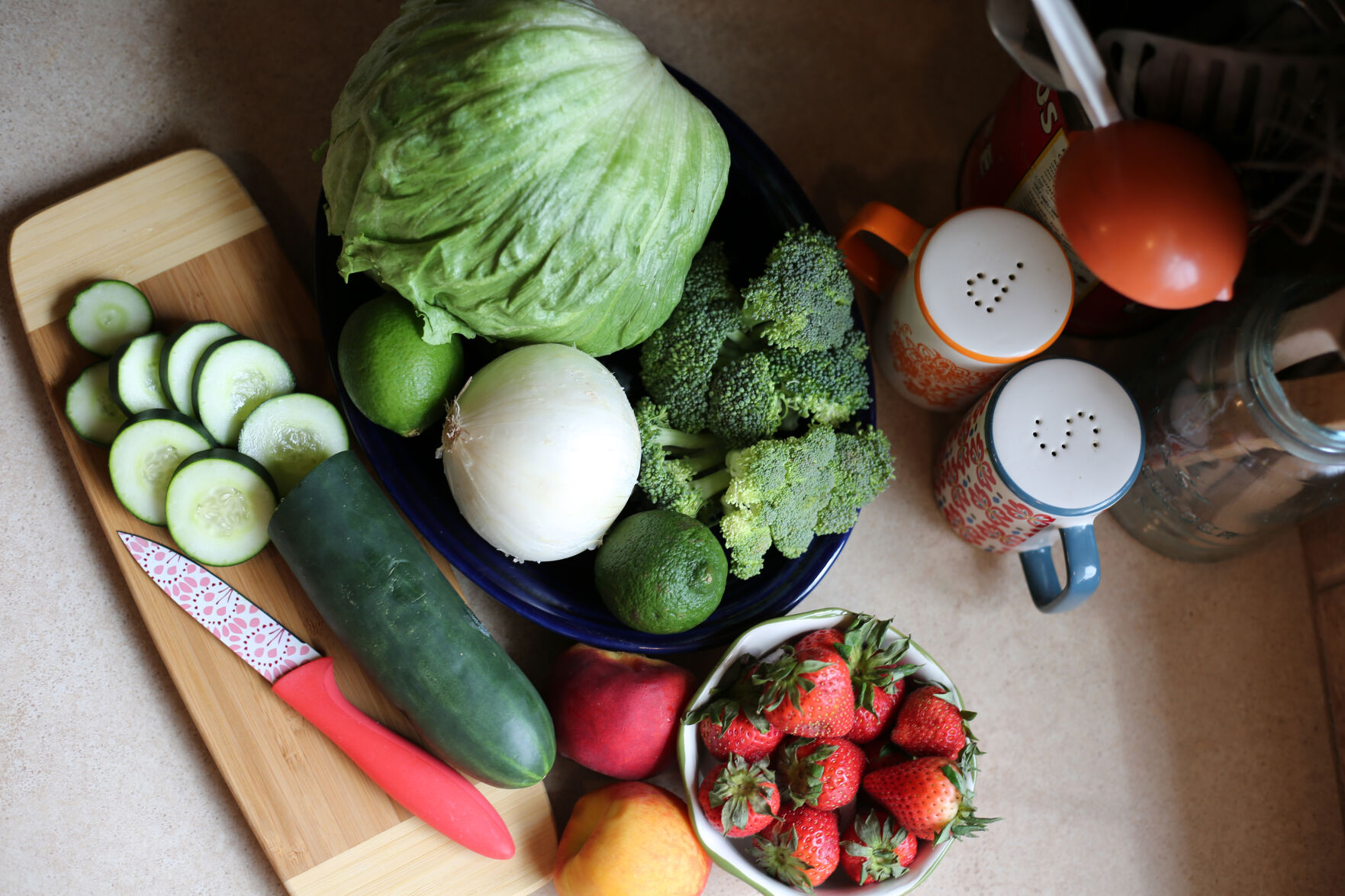The Bipartisan Policy Center issued its recommendations for the 2023 farm bill during a recent webinar.
Several of the co-chairs spoke during the event, including Dan R. Glickman, former secretary of agriculture with the U.S. Department of Agriculture and a senior fellow at BPC; José Andrés, founder, World Central Kitchen; Leslie Sarasin, president and CEO, The Food Industry Association; and Ann M. Veneman, former USDA secretary and senior fellow, BPC.
According to the BPC, the next farm bill gives Congress an opportunity to improve food and nutrition security through federal nutrition assistance programs by expanding access, reducing costs through improved efficiencies and program integrity, and promoting workforce participation.
The following programs are authorized by the farm bill: Supplemental Nutrition Assistance Program, The Emergency Food Assistance Program; Food Distribution Program on Indian Reservations; Commodity Supplemental Food Program; Fresh Fruit and Vegetable Program; Seniors Farmers’ Market Nutrition Program; Healthy Food Financing Initiative, and various community food projects.
In the most recent farm bill, which was signed into law 2018, expires Sept. 30, 2023, the nutrition title reauthorized the aforementioned programs. The nutrition title is composed 76% of the total 2018 farm bill spending—making it by far the costliest with most funds going to SNAP.
According to its website, BPC’s Food and Nutrition Security Task Force recommended five key policies to help strengthen SNAP and other federal nutrition assistance programs.
• Ensure that SNAP benefit levels are adequate to achieve a nutritious diet; that eligibility requirements and employment and training programs promote workforce participation and increased earnings without presenting undue barriers to SNAP participation; and that access to SNAP is expanded to all U.S. territories.
• Strengthen nutrition in SNAP by encouraging the consumption of nutritious foods through establishment of a fruit and vegetable cash value benefit, further expansion of and investment in the Gus Schumacher Nutrition Incentive Program, stronger retailer stocking standards, improvements to the SNAP-Ed program, better data collection, and demonstration projects.
• Use data matching, online purchasing, and other technology enhancements to improve SNAP access, integrity, and operations for participants and retailers.
• Modernize the food distribution programs, including The Emergency Food Assistance Program, the Food Distribution Program on Indian Reservations, and the Commodity Supplemental Food Program, to improve nutrition, program access, and program operations.
• Improve food and nutrition security for priority populations through other food and nutrition assistance programs, including the Fresh Fruit and Vegetable Program, Seniors Farmers’ Market Nutrition Program, Healthy Food Financing Initiative, Public-Private Partnerships Program, and Micro-Grants for Food Security Program.
Glickman said since the task force’s launch in May 2021, it has issued three detailed policy briefs to advise congress, the administration and those outside of government and even the private sector to address food and nutrition security. Early reports dealt with early public health emergencies, COVID and strengthening child nutrition programs.
“We’re going to be dealing with other issues involving nutrition in the future,” he said. “But the programs today have to do with reauthorization largely at the SNAP program, and we strongly believe that the second letter of SNAP nutrition is the end in SNAP is one of the focuses of our report today.”
Benefits work
For Glickman the recommendations about the need to ensure benefits are adequate and in some cases more secure, are much needed.
“We talk about SNAP pilot programs that encourage or incentivize eating fruits and vegetables or other healthy foods,” he said. “And we also talk about increasing our data collection on the program itself who takes advantage of it, what kind of foods that they eat.”
As collection efforts for SNAP are improved, as well as implementing evaluating the impact of accuracy; but also evaluating impact food consumption has on health.
“I think it will prove hopefully very valuable for Congress as they begin deliberations on the next farm bill.” he said. “We believe that the SNAP program has been extraordinarily important in making this country probably the leading country in the world and providing food security assistance for the poor, the needy, the hungry, and particularly families with small children.”
Sign up for HPJ Insights
Our weekly newsletter delivers the latest news straight to your inbox including breaking news, our exclusive columns and much more.
Glickman hopes the recommendations will strengthen the program so it continues to operate effectively.
“We have divided government in America and our role in the BPC is to try to improve the delivery of bipartisan solutions to our nation’s problems,” he said. “A bipartisan path forward is the only way that a farm bill will get done this year. And I think our recommendations will help facilitate that.”
Sarasin agrees and believes it’s important to ensure SNAP continues to serve Americans in a meaningful way.
“The members of this task force come from diverse organizations and backgrounds, but we’re all united in the strong belief that we must address the hardship of hunger in this country by coming together as one,” she said. “Our efforts to develop these recommendations demonstrate to policymakers as well as to the public that we’re serious about preserving and strengthening our safety nets so that all Americans can live without the fear of going hungry.”
Addressing food and nutrition insecurity is a pressing national concern, Sarasin said, not only from a public health standpoint, but also for improving mental and emotional well-being.
“When families don’t know where their next meal is coming from, it’s not just the physical health of sufferers,” she said. “Countless scientific studies have proven that more frequent family meals are associated with better nutrition and improved family dynamics. Unfortunately, families can’t reap these benefits if they don’t have access to nutritious, affordable foods.”
Working with grocery stores
In her role at FMI, Sarasin works to remedy those problems. Grocery store associates are the faces on the receiving end of the SNAP benefits, and FMI has a great responsibility to make sure the program is efficiently designed and effectively implemented to best meet customers’ needs.
“We take that responsibility very seriously,” she said. “The food industry has made great progress in implementing online SNAP programs throughout the country over the course of the pandemic,” she said. “We’re now able to offer customers flexibility through in-store purchases, curbside pickup and at home delivery so they can obtain the food they need for their families in whichever way is most convenient for them.”
Sarasin said there are healthier options throughout the stores—no calorie and low-calorie options in the beverage aisle, in order to better manage their health and that of their family.
“But even though we’ve made great strides on these fronts, we still have more work to do,” she said.
Andres has had an opportunity to listen to consumers as well as food experts during the process and has found his role in making recommendations in nutrition is an important one. He’s grateful for those who are responsible for food and the “amazing responsibility we all have in our shoulders,” he said.
“Experts that are also passionate about making sure that food is not a problem. That food is a solution to the many issues we may face in America,” he said.
Andres said for many years food was talked about as being the problem that needs solving. Every five years, leaders come together with the farm bill or Child Nutrition Reauthorization “in an attempt to solve it.”
“Sometimes we’re only scratching the surface, or as happened this last year, every 50 years, we host a big White House conference and make amendments to how will be how we can be ending hunger and improving nutrition,” he said.
Because of the pandemic people were able to think outside of the box and offer pragmatic ideas to address problems.
“When I see that hunger and nutritional security are still problems in America today, I’m very proud that we can be recommending increases in SNAP benefits as well as flexibility that will allow families to spend their benefits and more locations and healthier foods,” he said. “That’s the American way.”
Building for the long term
If we keep progressing in that direction, Andres hopes not only a better short-term solution can be found, but a long term one can be found to empower and enrich communities to make a healthier America. There needs to be the same programs in Puerto Rico and other U.S. territories, so those Americans living there will be able to feed themselves “with the same dignity as their fellow citizens living in the 50 U.S. states—in times of crisis or normal times,” he said.
“Food has the potential to bring dignity and to be part of the solution, not the problem,” Andres said. “We can make practical recommendations today and work in a bipartisan way to pass a strong farm bill that improves nutrition security all across (the world).”
At the same time, nutrition is more than policy and not something that can be addressed every five years in a farm bill, he said
“Food is at the core of how we make a smart policy, that becomes a smart politics,” he said. “Putting food at the center—I know, we all share that same belief that is the best way to create a healthy, equitable, and a prosperous future for our country.”
Improving quality diets
Former ag secretary Veneman said the average American has a poor diet in quality, with about 60% of diets aligning with dietary guidelines.
“Poor diets are increasing the risk for a host of health problems in both children and adults,” she said. “Things like obesity, type two diabetes, pre-diabetes, heart disease, some cancers and more. If quality across the population improved, even modestly, the U.S. could save billions of dollars a year in health care costs.”
Veneman hopes the recommendations for improving education with efforts focused on nutritional education and integrating them into the federal nutrition programs can help alleviate some of the issues. She’s also pushing for enhanced data collection to measure diet quality, status, and progress for all Americans and for those in the various nutritional programs.
“We’ve heard a lot about data today. We think that’s a very important part of really learning how to improve people diets,” she said. “Perhaps most importantly, we’ve recommended developing additional demonstration projects or pilot projects that evaluate in innovative approaches to reduce hunger and improve nutrition.”
These pilot projects are a demonstration to consider the added challenges SNAP participants and families face in achieving a nutrient rich diet as compared to the overall population.
“We encourage USDA to use their existing authority to improve nutrition and staff and for the population as a whole,” Veneman said. “The recommendations in our brief are common sense and bipartisan. and should be useful in informing this year’s farm reauthorization.”
For more information about the BPC recommendations, visit bit.ly/3Ev7uFf.
Kylene Scott can be reached at 620-227-1804 or [email protected].




